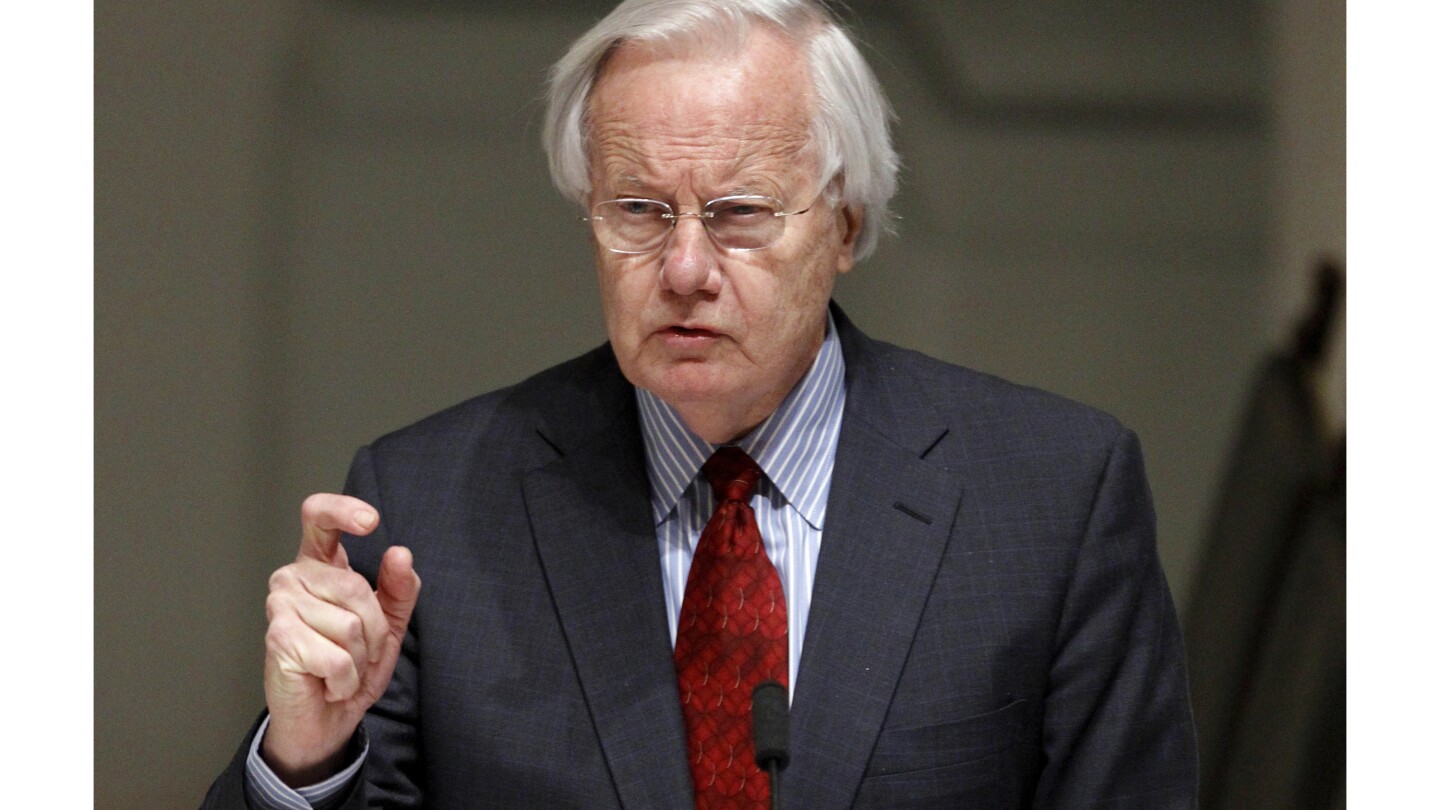NEW YORK – Bill Moyers, a towering figure in American journalism and former White House press secretary, passed away on Thursday at the age of 91. Known for his profound influence on public television, Moyers died at Memorial Sloan Kettering in New York City after a prolonged illness, as confirmed by his son, William.
Immediate Impact on Journalism
Moyers’ career spanned several decades and roles, from a Baptist minister to deputy director of the Peace Corps, and eventually to a celebrated journalist. He served as press secretary under President Lyndon B. Johnson and later became a senior news analyst for CBS. However, his most enduring legacy lies in the groundbreaking series he produced for public television.
Key Details Emerge
Throughout his career, Moyers tackled a wide array of topics, including government corruption, media consolidation, and environmental issues. His 1988 documentary, “The Secret Government,” explored the Iran-Contra scandal, and “Joseph Campbell and the Power of Myth” became a cultural phenomenon.
“The question is, are the talking heads thinking minds and thinking people? Are they interesting to watch? I think the most fascinating production value is the human face.” – Bill Moyers
Industry Response and Legacy
Renowned for his calm and probing interview style, Moyers was both celebrated and criticized for his liberal viewpoints. He often described himself as a “citizen journalist,” committed to exploring diverse ideas and perspectives.
By the Numbers
- More than 30 Emmy Awards
- 11 George Foster Peabody Awards
- Inducted into the Television Hall of Fame in 1995
Background Context
Born in Hugo, Oklahoma, Moyers’ journey from sports writing in high school to becoming a key figure in American journalism is remarkable. His tenure as press secretary was marked by efforts to bridge the gap between the Johnson administration and the media, although the Vietnam War eventually led to his resignation.
After leaving the White House, Moyers became publisher of Newsday, transforming it into an award-winning publication. His return to public television saw him produce critically acclaimed series that delved into the heart of American society and politics.
What Comes Next
Moyers’ contributions to journalism will continue to influence future generations of journalists and media professionals. His commitment to uncovering the truth and fostering public dialogue remains a guiding light for those in the industry.
As the media landscape evolves, Moyers’ work serves as a reminder of the power of thoughtful, investigative journalism in shaping public discourse and holding power to account.
AP Media Writer Dave Bauder and former Associated Press writer Robert Monroe contributed to this report. Monroe retired from the AP in 2017.
